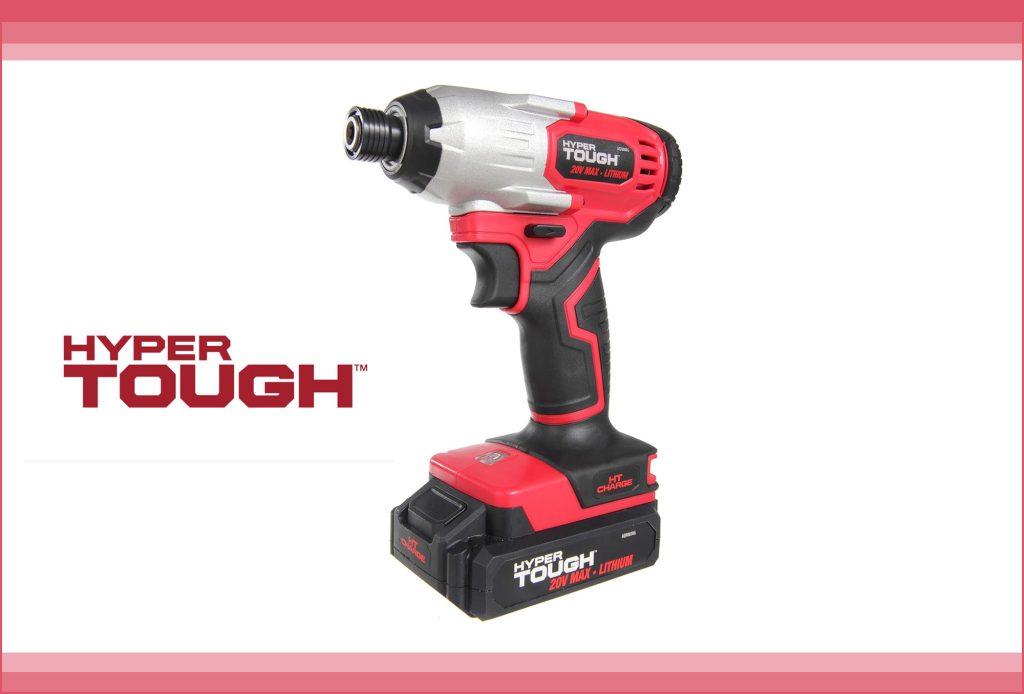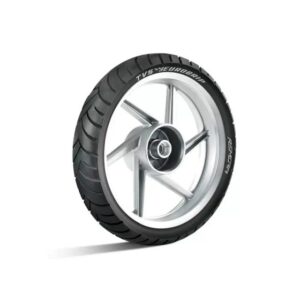Hyper Tough vs. The Competition: Which Tools Reign Supreme?
Introduction When shopping for power tools, you’ll come across several well-known brands, including Hyper Tough, DeWalt, Milwaukee, Ryobi, and Black+Decker....

Introduction
When shopping for power tools, you’ll come across several well-known brands, including Hyper Tough, DeWalt, Milwaukee, Ryobi, and Black+Decker. While Hyper Tough is known for its affordability, how does it compare to the competition? Are Hyper Tough tools worth buying, or should you invest in a higher-end brand?
In this article, we’ll compare Hyper Tough with its competitors, examine its pros and cons, and help you determine if it’s the right brand for you.
1. Overview of Hyper Tough
Hyper Tough is a budget-friendly tool brand sold primarily at Walmart. It offers a wide range of hand tools, power tools, and outdoor equipment, making it a convenient option for homeowners and DIY enthusiasts.
The brand focuses on affordability rather than professional-grade durability. This makes it a great option for light-duty tasks such as home repairs, furniture assembly, and DIY projects. However, it may not be the best choice for heavy-duty or professional work.
Now, let’s compare Hyper Tough with some of the biggest names in the tool industry.
2. Hyper Tough vs. DeWalt
DeWalt is one of the most respected power tool brands, known for its high performance, durability, and professional-grade quality. DeWalt tools are commonly used by contractors, carpenters, and mechanics.
Key Differences:
| Feature | Hyper Tough | DeWalt |
|---|---|---|
| Price | Affordable | Expensive |
| Durability | Good for light use | Built for heavy-duty use |
| Power | Moderate | High power for professional tasks |
| Battery Life (Cordless) | Decent but not the best | Long-lasting batteries |
| Warranty | 1-year limited warranty | 3+ years warranty |
Verdict:
If you need tools for casual home use, Hyper Tough is a cost-effective choice. However, if you’re a professional or heavy DIY user, DeWalt is worth the investment due to its superior durability and power.
3. Hyper Tough vs. Milwaukee
Milwaukee is a top-tier brand that offers high-performance, industrial-grade tools. It is well-known for its M18 and M12 cordless tool systems, which provide excellent battery life and power.
Key Differences:
| Feature | Hyper Tough | Milwaukee |
|---|---|---|
| Price | Low-cost | High-end |
| Power | Good for small projects | Extremely powerful |
| Battery Technology | Basic lithium-ion | Advanced RedLithium battery system |
| Durability | Limited lifespan | Built to last |
| Warranty | 1-year limited | Up to 5 years |
Verdict:
Milwaukee is designed for professionals and heavy-duty users, while Hyper Tough is best for casual DIYers and homeowners. If you need high-performance tools, Milwaukee is the better option, but expect to pay a premium price.
4. Hyper Tough vs. Ryobi
Ryobi is a mid-range brand that offers good quality at an affordable price. It is especially popular among DIYers and hobbyists who want reliable tools without paying premium prices.
Key Differences:
| Feature | Hyper Tough | Ryobi |
|---|---|---|
| Price | Very budget-friendly | Mid-range |
| Battery System | Basic lithium-ion | One+ battery system (interchangeable with all Ryobi tools) |
| Performance | Limited power | Stronger than Hyper Tough |
| Durability | Not the best | Decent for DIYers |
Verdict:
Ryobi is a great alternative to Hyper Tough if you’re willing to spend a little more for better quality and durability. It is a better long-term investment than Hyper Tough but still cheaper than DeWalt or Milwaukee.
5. Hyper Tough vs. Black+Decker
Black+Decker is another affordable brand that competes directly with Hyper Tough. Both brands are geared toward beginners and homeowners rather than professionals.
Key Differences:
| Feature | Hyper Tough | Black+Decker |
|---|---|---|
| Price | Low-cost | Affordable but slightly higher |
| Performance | Basic power | Slightly better than Hyper Tough |
| Battery System | Standard | 20V Max system (compatible with other Black+Decker tools) |
| Durability | Not for heavy use | More durable than Hyper Tough |
Verdict:
If you’re looking for a better-known budget brand, Black+Decker is a great alternative. It offers slightly better quality and battery life than Hyper Tough while remaining affordable.
6. Pros and Cons of Hyper Tough
Pros:
✅ Affordable: One of the most budget-friendly tool brands available.
✅ Good for Beginners: Simple, easy-to-use tools perfect for home projects.
✅ Lightweight & Portable: Many tools are compact and easy to handle.
✅ Decent Battery Performance: Cordless tools have acceptable battery life for light tasks.
✅ Wide Availability: Sold at Walmart, making it easy to purchase.
Cons:
❌ Limited Durability: Not built for long-term, heavy-duty use.
❌ Basic Features: Lacks high-end features found in professional tools.
❌ Lower Power Output: Less power than competitors like DeWalt or Milwaukee.
❌ Short Warranty: Most tools come with only a 1-year limited warranty.
7. Final Verdict: Which Brand is Best for You?
Choosing between Hyper Tough and its competitors depends on your needs and budget.
- Choose Hyper Tough if you are a beginner, casual DIYer, or homeowner looking for affordable tools for occasional use.
- Choose Ryobi or Black+Decker if you want better performance and durability without spending too much.
- Choose DeWalt or Milwaukee if you need high-power, professional-grade tools that can handle heavy-duty projects.
For light DIY projects, Hyper Tough is a great budget-friendly option. However, if you plan to use your tools frequently or for professional work, investing in a higher-end brand will provide better performance and longevity.
Final Thought: Hyper Tough is great for getting started, but if you need durability and power, the competition reigns supreme.



